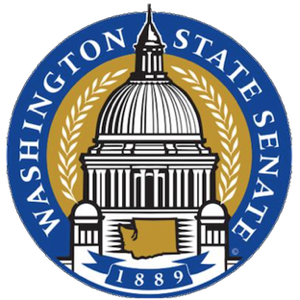The Washington State Senate (WA Senate) convenes floor sessions to read, debate, amend, and vote on legislation.
2nd Reading
During its 2nd reading, a bill returned from committee is presented for members to offer amendments. Should a bill's amendments by committee action or floor activity be adopted, the changed legislation is referred to as an engrossed bill.
- HB 2870 - "Allowing additional marijuana retail licenses for social equity purposes."
3rd Reading & Vote
During its 3rd reading, members can speak for or against a bill's passage. A final roll call vote is taken by machine and then read to the chamber.
HB 2870 - "Allowing additional marijuana retail licenses for social equity purposes."
